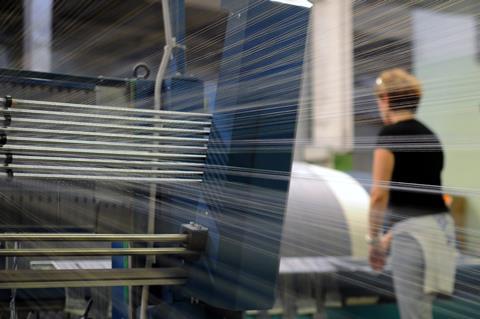The European Commission is changing the rules of the game for players in the textile sector, and those quickest to adapt will naturally enjoy competitive advantages, leading the way towards a sustainable society. This is what the textile sector will look like by 2030, according to the EU’s vision. Are you ready?

To guarantee that the textile industry will play its part in the block’s green transition, the European Commission plans to tackle the sector’s most relevant issues. From design flaws and green claims to waste management and working conditions, here are the main topics covered by the EU’s strategy.
Reversing overproduction and overconsumption
In a nutshell, the goal of the EU Commission here is to drive fast fashion out of fashion. The strategy mentions the importance of circular business models and a range of measures to boost the transition of European companies into this new format. The EU Commission for the first time has defined what fast fashion is and by extension calls for the end of such models. Among these initiatives, we will have investments, funding, and even a campaign with the motto #ReFashionNow, inviting citizens and all industry stakeholders to play a part in reshaping the fashion ecosystem.
Mandatory ecodesign requirements
Sustainable product design shall become the norm for products sold on the EU market. Issues related to durability, reusability, reparability, and recyclability of textile goods will be addressed by a set of mandatory eco-design requirements. The new legislation will also set requirements of lower environmental impact on products as well as setting limits on the use of potentially harmful substances. All of which falls in line with the EU’s Chemicals Strategy for Sustainability, aimed at radically changing how toxic substances are used throughout the block.
Stopping the destruction of unsold or returned textiles
In an effort to disincentivize the destruction of unsold or returned textile products, an increased transparency policy is being proposed, with a special focus on large corporations. Under this proposal, it would be mandatory for companies to publicly disclose the number of goods being discarded or destroyed as well as the treatment given to the waste generated in this process. A ban on the destruction of unsold or returned textiles is likely also considered according to the European Commission, depending on the outcomes of this transparency policy.
Addressing microplastic pollution
One of the risks linked to goods increasingly being made of fossil-based synthetic fibers, is the release of microplastics into the environment along their life cycle. With this matter in mind, the strategy mentions the EU’s plans to regulate various manufacturing processes, including pre-washing at industrial manufacturing plants. Changes in textile design, waste management practices, promotion of innovative materials, and even the use of new washing machine filters are also some of the measures proposed by the document.
Digital product passport and information requirements
Among the many changes aimed at increasing transparency in the sector, as mentioned in our update on the textile strategy, a Digital Product Passport for textile goods will be introduced. The passport will contain mandatory information regarding the sustainability aspects of the product and should support consumers and other stakeholders in their decision-making process. The Textile Labelling Regulation will also be reviewed and digital labels might be implemented in the future.
Green claims for truly sustainable textiles
For EU organizations, claiming to have an “eco-friendly” product will involve a lot more than just adding the term to labels and marketing campaigns. Popular environmental claims such as “green” or “good for the environment” will have to be supported by evidence of excellence in sustainable performance across the entire value chain, based on EU ecolabels or on specific legislation.
Extending producer responsibility and boosting reuse and recycling
Extending the producer’s responsibility means making manufacturers accountable for the entire lifecycle of a product, including when it becomes waste. The EU Commission’s intention is to introduce harmonized EU extended producer responsibility rules for textiles with eco-modulation of fees. In addition to the existing legislation, which requires member states to implement the separate collection of textile waste by 1st January 2025, these initiatives should stimulate the growth of a circular economy, minimizing the industry’s environmental impact.
The Transition Pathway for the textiles ecosystem of the future
One of the most relevant schemes included in the EU sustainable textiles strategy is the launch of the Transition Pathway, which should take place in the second quarter of 2022. The Pathway is a platform where organizations in the industry can engage in discussions with the European Commission to develop a common vision for the future of the textile ecosystem, also providing an opportunity for companies to announce their environmental pledges. Once implemented, the platform should be able to track the progress of initiatives underway.
Supporting research, innovation and investments
To enable the green transition, calls under Horizon Europe and many other funding initiatives will contribute to research and development projects in the textile sector. Co-financing will also be made available by the EU Commission for those investing in technological solutions involved in establishing circular fashion business models. In addition to financial stimuli, projects like the European Green Deal Dataspace and the Network of European Digital Innovation Hubs show the EU Commission’s belief in advancing innovation through data sharing and collaboration between organizations.
Developing the skills needed to make the transition
On top of the R&D efforts mentioned, the strategy also addresses a skill shortage that could hinder the progress of both digital and green transitions. Launched in December 2021, the Pact for Skills encompasses a series of initiatives, including vocational training and apprenticeship programmes, which should result in a skilled workforce prepared to tackle the challenge of transforming the future textile industry.
Due diligence for environmental and social fairness
More than simple accountability for what happens in their own operations, the strategy proposes comprehensive due diligence obligations for large EU organizations, with a direct impact on textiles. A new Corporate Sustainability Due Diligence Directive plans to make it mandatory for large companies to prevent, monitor and solve any social or environmental issues found across their global value chain, including the practices of third-country partners and suppliers.
Textile waste management: Addressing export challenges
Sustainable waste management is a priority for the European Commission and will be supported by new rules regarding the shipment of textile waste to third countries. Under the proposed regulations, operators would only be allowed to export textile waste to countries with proven capability to sustainably handle these materials and who are expressing an interest in receiving them.
In summary, the EU strategy for circular and sustainable textiles is an all-encompassing plan with impacts at every level of the value chain. Compliance with upcoming legislation will be essential not only to remain competitive in the market but also to prevent more serious issues, such as a possible loss of the license to operate within the block.
Ohana Public Affairs is a boutique public affairs consultancy specialized in sustainability and dedicated to making the European Union’s policies and processes easy to understand and readily actionable within organizations. Through our unique approach to public affairs, we develop customized strategies based on the needs of each client, working in close proximity with their teams to make it happen. Our presence in Brussels is strategic, allowing us to gather critical information and build stronger relationships with political decision-makers and other stakeholders. As a company, we are committed to driving positive change through public affairs and to the belief that it is possible to work alongside organizations and help them grow while still advancing sustainability.







